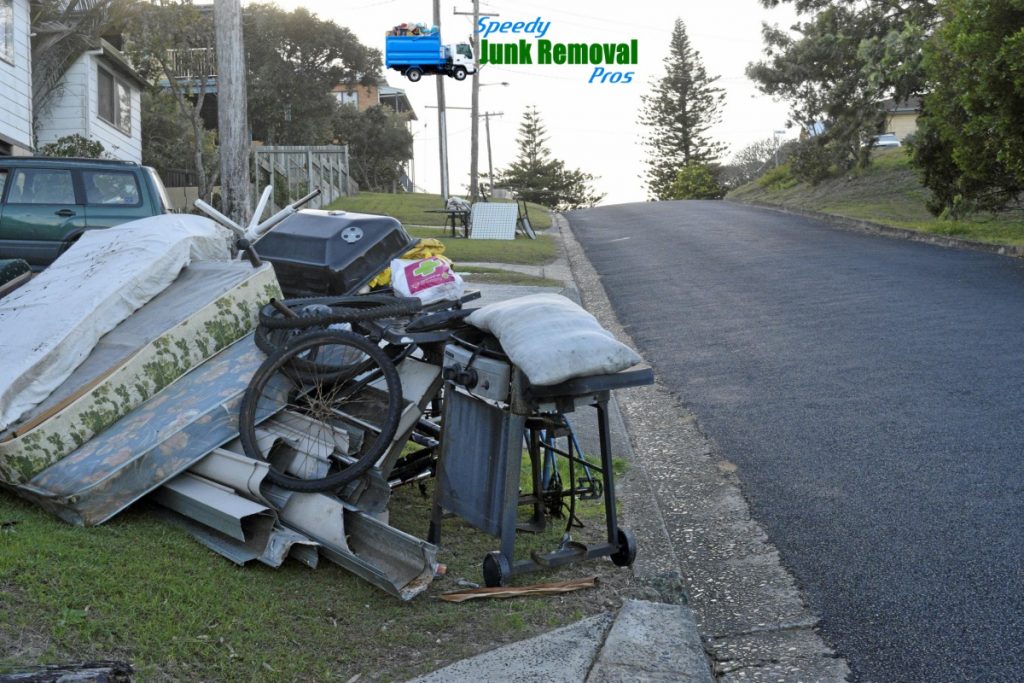So you’ve landed your first junk removal job. Now, how do you properly dispose of the junk?
Being in the junk hauling business means that you’ll be picking up various large, oversized, and at times, unique items. While taking everything to the dump may be the easiest way to dispose of unwanted junk and debris, figuring out an ethical and responsible way to dispose of those items can improve your revenue and your community.
If you have the time, we suggest sorting through the junk after every pick up so that you can properly dispose of each item, giving life to items that still can be used and giving the final dump to those that can’t.
Below are the five best practices when it comes to disposing of unwanted junk.
1. Resell Valuable Items
As the adage goes, there can be treasures found in others’ trash. If you’re motivated to grow your junk removal business, listing the more valuable items on Craigslist or eBay is a great way to make some extra cash. For example, one hauler who works with us was able to pick up several church pews and resell them on eBay, turning a $600 furniture removal job into a $4,600 job.
Depending on the items, it’s sometimes worth renting a storage unit or space to hold these items. Just be sure you don’t end up storing them too long.
Other sites where you can resell items include:
- Facebook Marketplace
- LetGo
- Craigslist
- OfferUp
For electronics, check out:
- Swappa
- Glyde
- Gazelle
If you’d rather not deal with the hassle of reselling items, and you’re feeling charitable consider our second option, donation.
2. Donate New and Gently Used Items
The next option you should consider is donating the items. Donating used items allows you to give things to those who need it most while cutting down on disposal fees.
A few places that accept used items include Goodwill, Habitat for Humanity, and the Salvation Army. You could also check with local charities to see if there are any items they need.
Before donating, ensure that the items you want to give away are in working condition, or don’t need any significant repairs. When it comes to appliances, check to see if there are any water damages or cracks.
If you’re unsure about whether they’ll accept the items you’ve picked up, call the donation location before you drop them off.
Items accepted at most donation centers include:
- Vehicles
- Small appliances
- Flat screen TVs
- Dressers
- Tables
- Sofas
- Bed frames
- Mainframe computers and laptops
- Fax machines
Items not usually accepted include:
- Mattresses
- CRT TVs and computer monitors
- Carpet
- Cribs, car seats and walkers
If you’re helping clean up after a construction or demolition job, the Habitat ReStore will accept building material donations including:
- Doors and windows
- Flooring
- Unused lumber
- Kitchen cabinets
- Fencing
Donating the eligible junk not only provides value to those receiving it, but it’s also good to know that the junk you’re hauling away is going to a new home.
3. Recycle it
If an item can’t be donated, check to see if it can be recycled. Many items are dumped into landfills when they could be recycled and repurposed into something new. For instance, household appliances have many components that can be recycled, including steel, which is the most recycled material in the U.S.
Recyclable household items include:
- Air conditioners
- Water heaters
- Dishwashers
- Washing machines
- Dryers
- Refrigerators
- Freezes
- Stoves and ovens
- Microwaves
Recyclable construction materials include:
- Concrete
- Plastic
- Lumber
- Tile
- Metals
- Rock
- Carpet
- Insulation
As you can see, a lot of the junk you will encounter on the job can be recycled. Taking these items to your local recycler is good for the environment and you can make money off of some of the items you recycle, providing additional income for your business.
However, some items cost money to recycle (including electronics), so take that into consideration when charging for the job.
4. Take it to the Dump
At this point, if you’ve sold, donated, or recycled items that are accepted, you’ve done your part in helping minimize the amount of junk in landfills. Items that are in poor condition and that are not recyclable should be taken to the dump. You can find a local dump by searching Google for a waste disposal center near you.
Items that city dumps usually take include:
- Household garbage
- Non-hazardous wastes
- Construction debris
- Roofing materials
- Wood
- Concrete
- Metals
- Yard waste
5. When to Halt the Haul
In the end, not everything can be sold, donated, recycled, or even disposed of at a standard city dump. Items that are hazardous or toxic (see list below) should never be thrown away, put down the drain, or flushed down the toilet.
Check with your local regulations before hauling the following:
- Batteries
- Paint
- Chemicals
- Bio-hazardous waste
- Propane tanks
- Explosives
If you’re ever in doubt about whether an item can be recycled, donated, or dropped off at a dump, a simple Google search + your city will most likely provide you with the answer.
Now it’s your turn. How do you plan to handle your junk removal debris? Will you donate most of what you pick up? Or are you going to be a regular at your local city dump?

